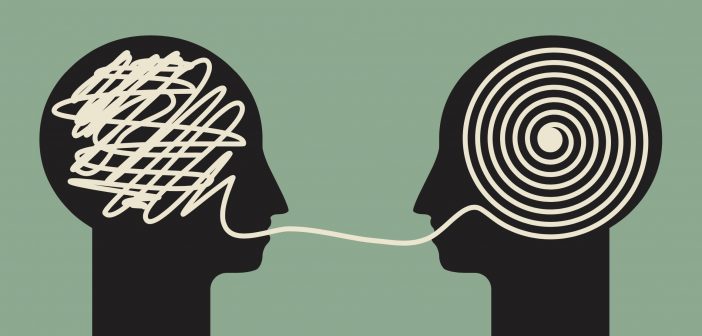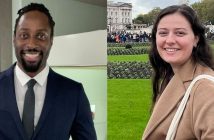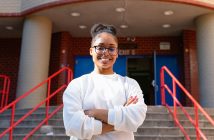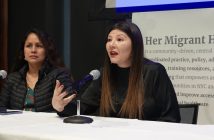This past October, a team of Fordham scholars was awarded $20,000 from the Wenner-Gren Foundation for Anthropological Research to create a workshop where Fordham undergraduates, local high school students, and scholars work together to make academic articles easier to understand.
“Academic writing is often inaccessible to the people whom the findings most affect, especially young people of color in public high schools,” said Ayala Fader, Ph.D., project collaborator and professor of anthropology at Fordham. “We hope that this workshop gives students access to scholarship on language and inequality and the ability to reflect on how these subjects affect their own lives, while showing them what college life and careers in linguistic anthropology look like.”
This new writing initiative, the Demystifying Language Project (DLP), began with a three-week pilot class in 2019. In collaboration with Fordham’s Center for Community Engaged Learning, two non-Fordham graduate students taught high school students a class on linguistic anthropology, which included simplified academic readings. But at the end of the pilot session, the DLP team realized the teaching material was still too dense and incomprehensible for the students.
“This is tragic because high school students are losing the potential to better understand the ways that language, culture, and power work in the world,” said Fader, a linguistic anthropologist who studies the relationship between language, culture, and inequality. “During the pandemic, the DLP team decided to focus on creating a set of readings that are accessible to all high school students.”
Fader is collaborating with five other scholars: Sarah Grey, Ph.D., director of Fordham’s linguistics program; Britta Ingebretson, Ph.D, assistant professor of linguistics and Chinese at Fordham; Johanna Quinn, Ph.D., assistant professor of sociology at Fordham; Clarence Ball III, a lecturer in Fordham’s Gabelli School of Business; and Lynnette Arnold, Ph.D., an assistant professor of anthropology at University of Massachusetts Amherst.
Together, they decided to create a three-day workshop, funded by the grant, where traditional roles in the classroom are reversed. Next year, a group of 12 experts in linguistic anthropology and sociolinguistics will each select an article they have already published—on topics that are relevant to the students, including police violence, food insecurity, and other inequalities—and work with the students to make the writing more engaging for their high school peers. First, each expert will be paired with a high school student and a Fordham undergraduate who has taken an anthropology or linguistics class; they will review the original article and interview the expert about their work. Then after collaboration with other professionals, each expert will figure out how to distill their work into two pages of simple and interesting prose for a high school student.
“Students will ask the academics about what was interesting and what they didn’t understand, and tell them the most important part about the article from their eyes,” Fader said. “We hope this develops a new way of writing that reaches more people beyond the usual academic audience.”
The revised articles will be published on the American Anthropological Association’s website, where students, teachers, and faculty from other academic institutions can read the material and learn how to integrate it into their own curriculum, said Fader. In addition, the DLP team will publish two pieces: an academic article that documents what it was like to develop and host the workshop and an op-ed that explains their experience in conversational language.
In the months ahead, the DLP team will focus on strengthening relationships with local public high schools in Manhattan and the Bronx. This spring, they will select specific schools to partner with. They will cultivate bonds among all participants so that when the day of the workshop arrives—sometime next year, though the date has yet to be determined—the participants will be ready to collaborate on Fordham’s campus.
“We are potentially creating a set of tools to help high school students make positive changes in their own lives,” said Fader, adding that the DLP team wants to eventually develop a summer institute where more high school students and teachers can learn these same ideas. “This workshop is not only good for students, but also has the potential to transform the field of linguistic anthropology and sociolinguistics as more students—both undergrads and high school students—conduct their own research and hopefully become interested in the field.”



